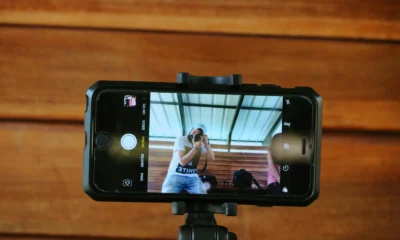Business
Auto strike poses key test for pro-labor Biden on September 17, 2023 at 12:00 pm Business News | The Hill

The United Auto Workers (UAW) strike could have major political implications for Joe Biden, who has repeatedly framed himself as the most pro-labor president in history.
Biden, who is running for reelection with a dismal approval rating, has worked to secure political support from blue-collar workers. But his pro-union bona fides and claims of U.S. manufacturing success are at stake with strike, which his administration tried and failed to prevent.
It was a blow to Biden when a deal wasn’t made after months of negotiations between the UAW and Ford, Stellantis and General Motors. Much of the economic gains during his presidency, for which he has already struggled to get credit, could be threatened.
Negotiations have been focused on pay increases, pensions, career security and workers concerns over electric vehicles (EVs). Biden, an unapologetic “car guy,” leaned into his support for the auto workers on Friday, saying that record corporate profits “should be shared by record contracts for the UAW.”
Biden said he is dispatching acting Labor Secretary Julie Su and director of the National Economic Council Gene Sterling to Detroit to talk to both sides. But looming over such moves is the fact that the UAW has not yet endorsed Biden for 2024, despite most major unions announcing their backing of him months ago.
The UAW said, however, that it wouldn’t endorse former President Trump, and union President Shawn Fain went so far earlier this month as to say that Trump is “not a person I want as my president.”
Democrats lost many union workers in 2020 in states such as Ohio to Trump, whose anti-free trade message and other rhetoric resonated with the labor vote. That came after union households had already somewhat shifted blue-to-red in 2016.
“Why did Democrats lose the Midwest? Why did the blue wall crumble? It’s because they allowed good union jobs in the auto industry to be offshore,” said Joseph Geevarghese, executive director of Our Revolution. “This strike is an opportunity for the president to … say to the Big Three, ‘You’re incredibly profitable, we’re going to invest in you, but the return in investment we need to see is for working class Americans.’”
“Failure to do so, I think, will mean he risks losing working class voters. They either sit it out or they vote for a Donald Trump-like figure who won his election by promising to champion the deindustrialized Midwest,” Geevarghese added.
Biden’s campaign has an enthusiasm problem, with voters often citing his age as a major issue and his approval rating lingering just below 40 percent. The lack of excitement from some progressives such as college students and climate activists threatens a low voter turnout but not necessarily a vote for Trump or some other GOP nominee.
Union workers, however, could be a group that votes for a Republican, something that already occurred in 2016, instead of just not showing up for Biden.
When asked about pressure on Biden considering that Michigan, which he won in 2020, is an essential state in 2024 and workers are an essential demographic to win, White House press secretary Karine Jean-Pierre said, “there are always unique sets of circumstances when we’re talking about collective bargaining with unions.”
Biden has made a major push for a transition towards electric cars, and when the UAW said it would withhold its endorsement for Biden, it cited concerns over the White House’s focus on EVs.
Trump on Wednesday urged the UAW to make repealing Biden’s push for EVs its “top, non-negotiable demand in any strike,” warning that if the policy stands, “all your jobs will be sent to China” because “there’s no such thing as a ‘fair transition.’”
Biden’s reelection campaign in response argued Trump will say anything to distract from his own record and said that Trump suggested in 2015 moving some car production from Michigan.
“Under Trump, autoworkers shuttered their doors and sent American jobs overseas. Under Trump, auto companies would have likely gone bankrupt, devastating the industry and upending millions of lives,” said Ammar Moussa, a Biden-Harris spokesperson.
When asked if the strike is a result of the president’s push towards the EV transition, Jean-Pierre on Friday said, “No, we don’t believe that to be.” She added that EV sales are hitting record highs and prices for the vehicles are coming down.
While the White House has maintained it won’t intervene in the negotiations, Sterling and Su are being deployed as coordinators between the two sides.
But Biden’s Friday comments came across as a firm endorsement of the workers.
He said UAW members have “extraordinary skill and sacrifices” and that the UAW is “at the heart of our economy.”
“This is a question of whether cars are going to be made here at home or in China and overseas. Joe Biden is not going to turn his back on American manufacturing. He’s been clear he’s supporting workers during this process,” a Biden adviser told The Hill.
Michael Starr Hopkins, a Democratic strategist, argued that Biden personally fights for working Americans and his vision has always been to support not just the wealthy.
“The name Biden is synonymous with working Americans. That’s why Americans overwhelmingly believe that Joe Biden wakes up every day fighting for their futures. The president knows what it’s like to live in a home that’s paycheck to paycheck. It’s personal to him,” Hopkins said.
Biden maintains strong support other labor groups, and his reelection was endorsed in June by AFL-CIO head Liz Schuler, AFCME President Lee Saunders and others.
Unions cite his gains for workers, including investments in infrastructure, manufacturing and clean energy jobs through legislation including the Inflation Reduction Act, CHIPs and Science Act and Infrastructure Law.
Jean-Pierre on Friday did stop short of saying Biden supports UAW’s demand for a 40 percent increase and she wouldn’t confirm any upcoming conversations between Biden and Fain.
“This is a which side are you on moment going into a presidential election season. Is he really on the side of workers? If so, he should stand with the UAW and put pressure on the Big Three,” Geevarghese said.
On the other side, the business community is taking note that the president appears to be leanings away from support for the auto giants during this strike.
“The UAW strike and indeed the ‘summer of strikes’ is the natural result of the Biden administration’s ‘whole of government’ approach to promoting unionization at all costs,” Chamber of Commerce President Suzanne Clark said in a statement.
Hollywood writers and actors have been striking for weeks over fair pay and benefits, and major strikes were only barely averted for UPS staffers and West Coast dockworkers.
The Teamsters, ahead of its deal with UPS, had asked the White House not to intervene if workers’ strike.
The administration did intervene last fall to avoid a nationwide railroad strike. Biden called into talks between negotiators, led by former Labor Secretary Marty Walsh, and made clear a shutdown of railways was unacceptable. Then, following 20 hours of negotiations, a deal appeared to avoid a strike that could have crippled the U.S. supply chain.
At the time, the president hailed the tentative agreement to avoid a nationwide railroad strike as proof that unions and management can work together.
Months later, Biden chose to make remarks in front of a room full of union workers for his first speech since announcing his reelection bid in April.
“I make no apologies for being the most pro-union president. And I’m proud of it,” Biden said at a North America’s Building Trades Union conference. “We — you and I together — we’re turning things around and we’re doing it in a big way.”
Administration, Business, Campaign The United Auto Workers (UAW) strike could have major political implications for Joe Biden, who has repeatedly framed himself as the most pro-labor president in history. Biden, who is running for reelection with a dismal approval rating, has worked to secure political support from blue-collar workers. But his pro-union bona fides and claims of U.S….
Business
How Trump’s Tariffs Could Hit American Wallets

As the debate over tariffs heats up ahead of the 2024 election, new analysis reveals that American consumers could face significant financial consequences if former President Donald Trump’s proposed tariffs are enacted and maintained. According to a recent report highlighted by Forbes, the impact could be felt across households, businesses, and the broader U.S. economy.
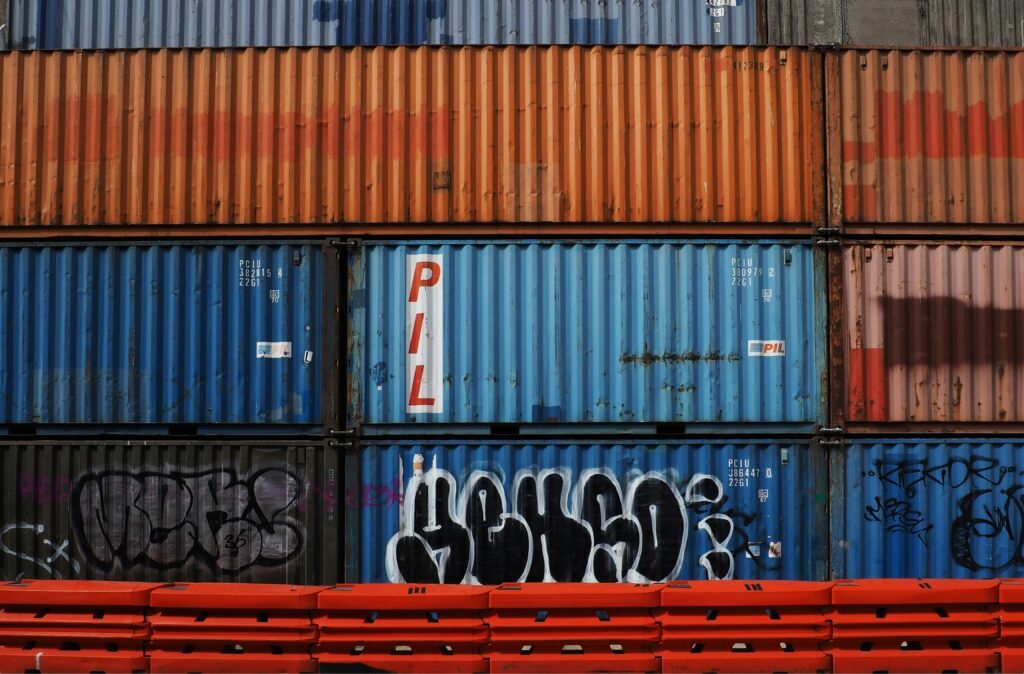
The Household Cost: Up to $2,400 More Per Year
Research from Yale University’s Budget Lab, cited by Forbes, estimates that the average U.S. household could pay an additional $2,400 in 2025 if the new tariffs take effect and persist. This projection reflects the cumulative impact of all tariffs announced in Trump’s plan.
Price Hikes Across Everyday Goods
The tariffs are expected to drive up consumer prices by 1.8% in the near term. Some of the hardest-hit categories include:
- Apparel: Prices could jump 37% in the short term (and 18% long-term).
- Footwear: Up 39% short-term (18% long-term).
- Metals: Up 43%.
- Leather products: Up 39%.
- Electrical equipment: Up 26%.
- Motor vehicles, electronics, rubber, and plastic products: Up 11–18%.
- Groceries: Items like vegetables, fruits, and nuts could rise up to 6%, with additional increases for coffee and orange juice due to specific tariffs on Brazilian imports.
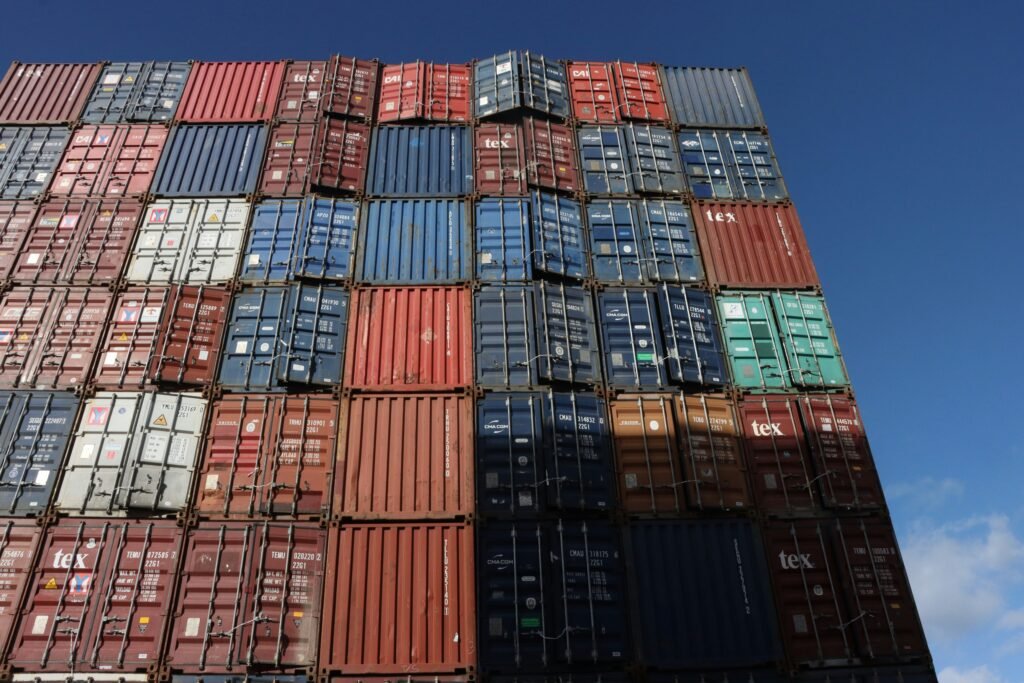
A Historic Tariff Rate and Economic Impact
If fully implemented, the effective tariff rate on U.S. consumers could reach 18%, the highest level since 1934. The broader economic consequences are also notable:
- GDP Reduction: The tariffs could reduce U.S. GDP by 0.4% annually, equating to about $110 billion per year.
- Revenue vs. Losses: While tariffs are projected to generate $2.2 trillion in revenue over the next decade, this would be offset by $418 billion in negative economic impacts.
How Businesses Are Responding
A KPMG survey cited in the report found that 83% of business leaders expect to raise prices within six months of tariff implementation. More than half say their profit margins are already under pressure, suggesting that consumers will likely bear the brunt of these increased costs.
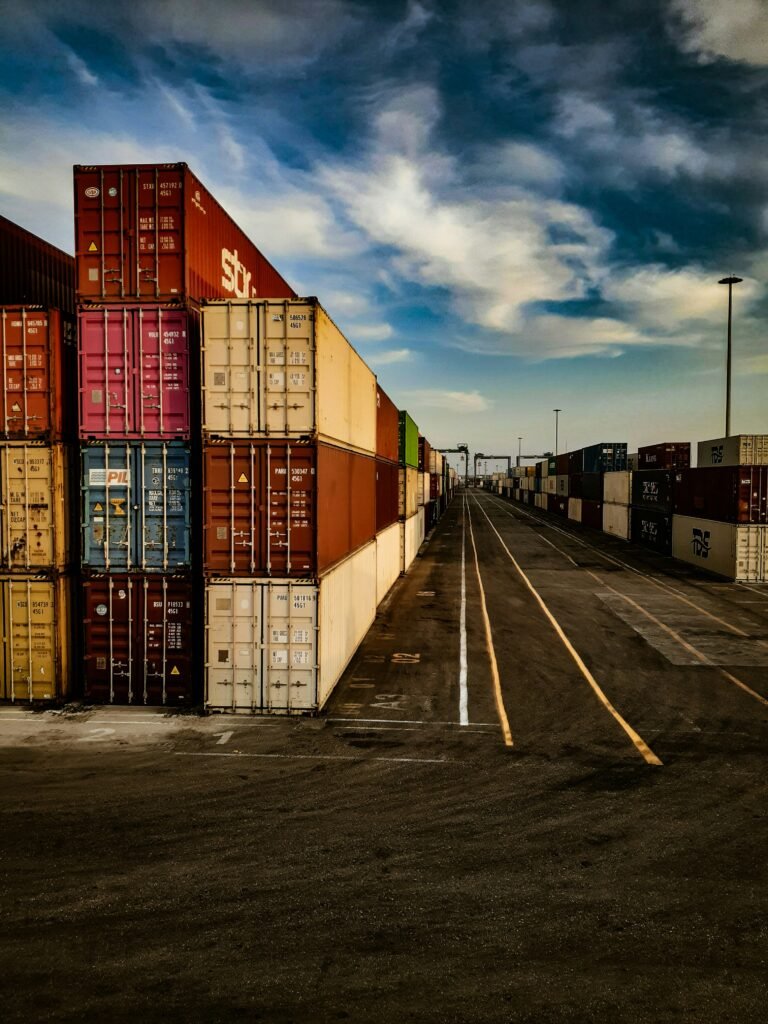
What This Means for Americans
The findings underscore the potential for substantial financial strain on American families and businesses if Trump’s proposed tariffs are enacted. With consumer prices set to rise and economic growth projected to slow, the debate over tariffs is likely to remain front and center in the months ahead.
For more in-depth economic analysis and updates, stay tuned to Bolanlemedia.com.
Business
U.S. Limits Nigerian Non-Immigrant Visas to Three-Month Validity

In July 2025, the United States implemented significant changes to its visa policy for Nigerian citizens, restricting most non-immigrant and non-diplomatic visas to a single entry and a maximum validity of three months. This marks a departure from previous policies that allowed for multiple entries and longer stays, and has important implications for travel, business, and diplomatic relations between the two countries.
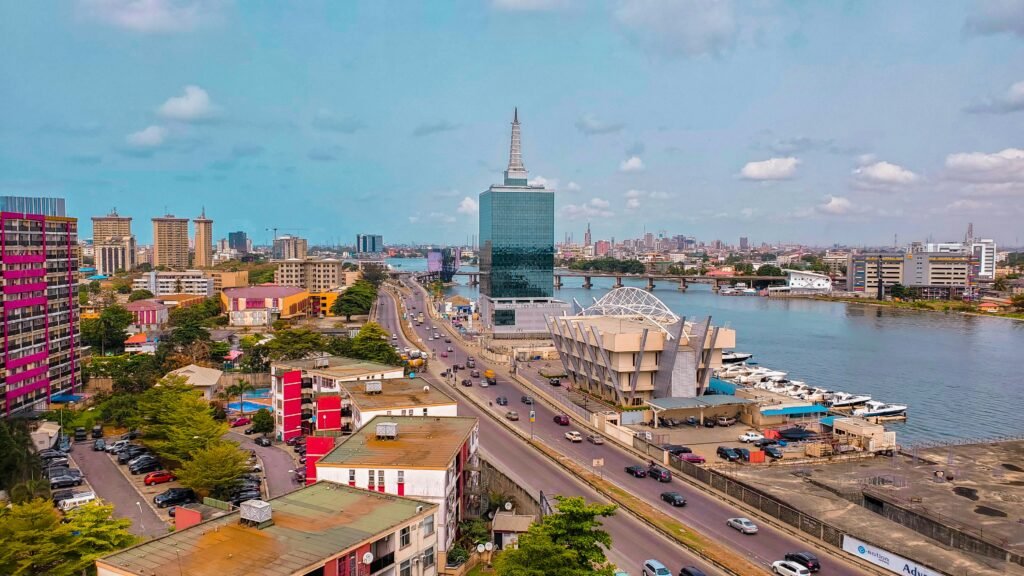
Key Changes in U.S. Visa Policy for Nigerians
- Single-Entry, Three-Month Limit: As of July 8, 2025, most non-immigrant visas issued to Nigerians are now valid for only one entry and up to three months.
- No Retroactive Impact: Visas issued prior to this date remain valid under their original terms.
- Reciprocity Principle: The U.S. cited alignment with Nigeria’s own visa policies for U.S. citizens as the basis for these changes.
- Enhanced Security Screening: Applicants are required to make their social media accounts public for vetting, and are subject to increased scrutiny for any signs of hostility toward U.S. institutions.
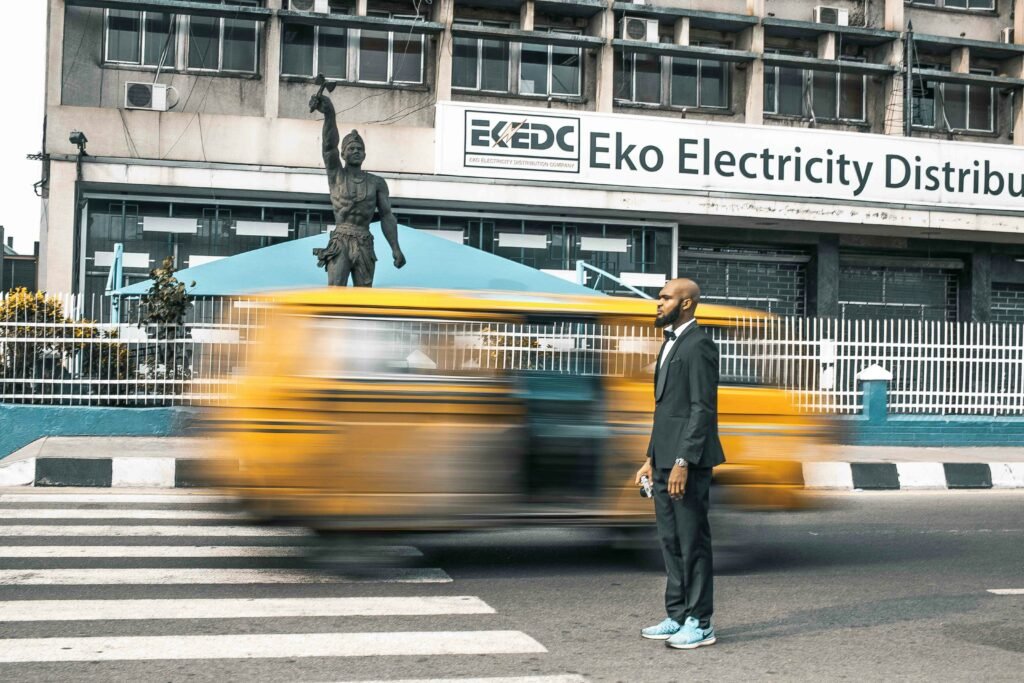
Rationale Behind the Policy Shift
- Security and Immigration Integrity: The U.S. government stated the changes are intended to safeguard the immigration system and meet global security standards.
- Diplomatic Reciprocity: These restrictions mirror the limitations Nigeria imposes on U.S. travelers, emphasizing the principle of fairness in international visa agreements.
- Potential for Further Action: The U.S. has indicated that additional travel restrictions could be introduced if Nigeria does not address certain diplomatic and security concerns.
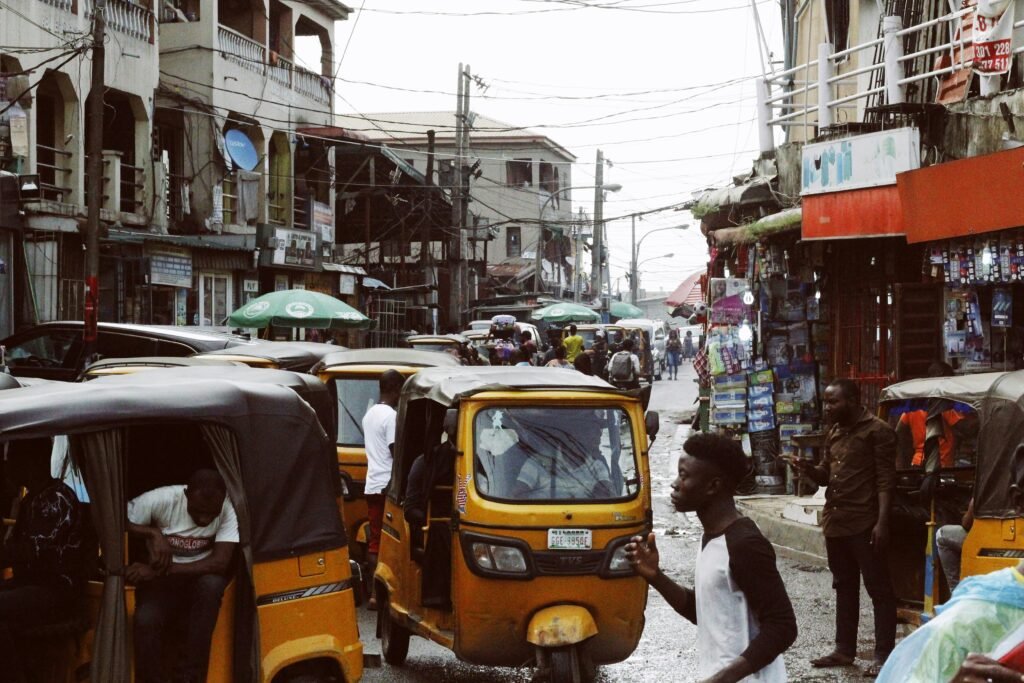
Nigeria’s Updated Visa Policy
- Nigeria Visa Policy 2025 (NVP 2025): Introduced in May 2025, this policy features a new e-Visa system for short visits and reorganizes visa categories:
- Short Visit Visas (e-Visa): For business or tourism, valid up to three months, non-renewable, processed digitally within 48 hours.
- Temporary Residence Visas: For employment or study, valid up to two years.
- Permanent Residence Visas: For investors, retirees, and highly skilled individuals.
- Visa Exemptions: ECOWAS citizens and certain diplomatic passport holders remain exempt.
- Reciprocal Restrictions: Most short-stay and business visas for U.S. citizens are single-entry and short-term, reflecting reciprocal treatment.
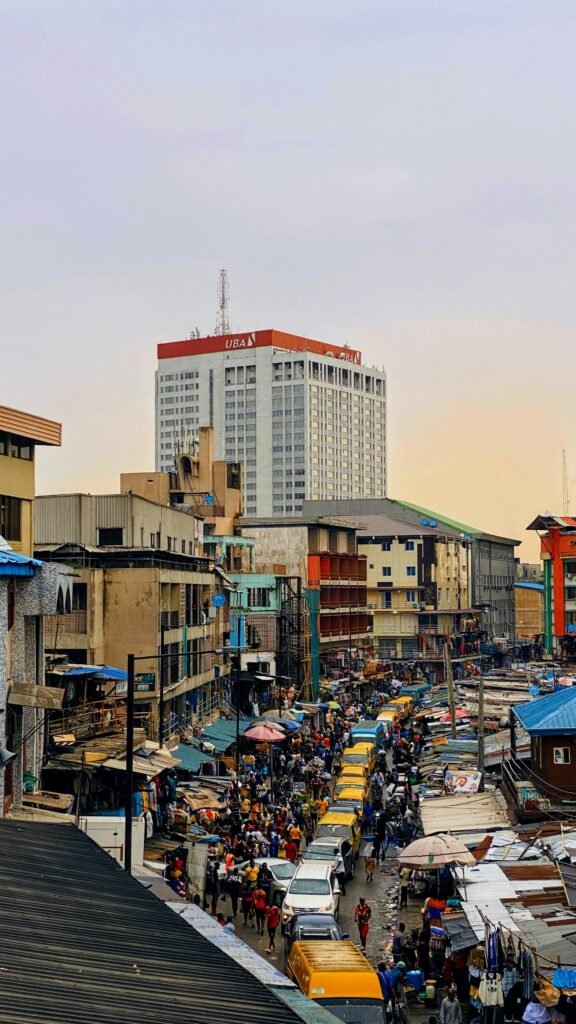
Impact on Travelers and Bilateral Relations
- Nigerian Travelers: Face increased administrative requirements, higher costs, and reduced travel flexibility to the U.S.
- U.S. Travelers to Nigeria: Encounter similar restrictions, with most visas limited to single entry and short duration.
- Diplomatic Tensions: Nigerian officials have called for reconsideration of the U.S. policy, warning of negative effects on bilateral ties and people-to-people exchanges.
Conclusion
The U.S. decision to limit Nigerian non-immigrant visas to three months highlights the growing complexity and reciprocity in global visa regimes. Both countries are tightening their policies, citing security and fairness, which underscores the need for travelers and businesses to stay informed and adapt to evolving requirements.
Business
Nicki Minaj Demands $200 Million from Jay-Z in Explosive Twitter Rant
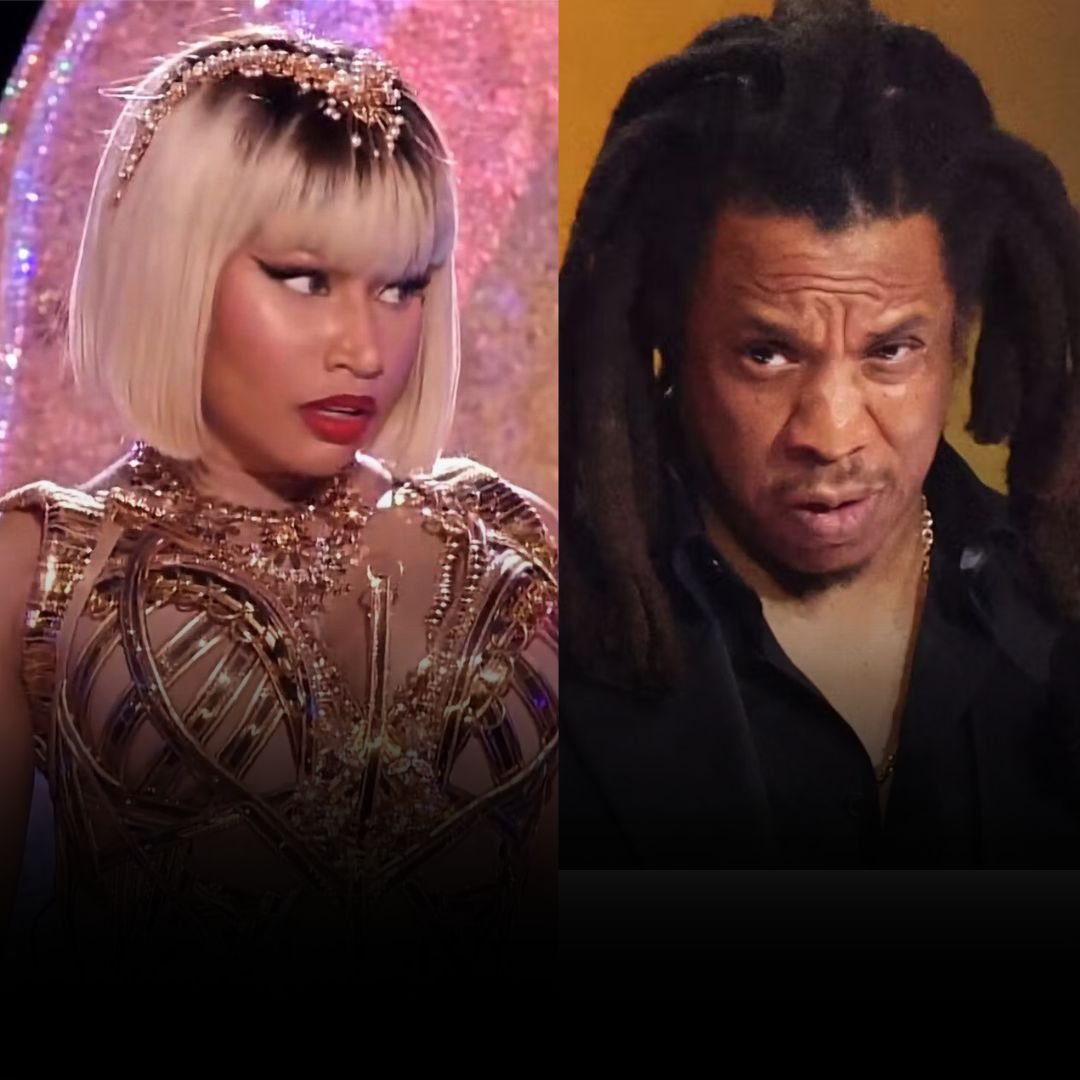
Nicki Minaj has once again set social media ablaze, this time targeting Jay-Z with a series of pointed tweets that allege he owes her an eye-popping $200 million. The outburst has reignited debates about artist compensation, industry transparency, and the ongoing power struggles within hip-hop’s elite circles.
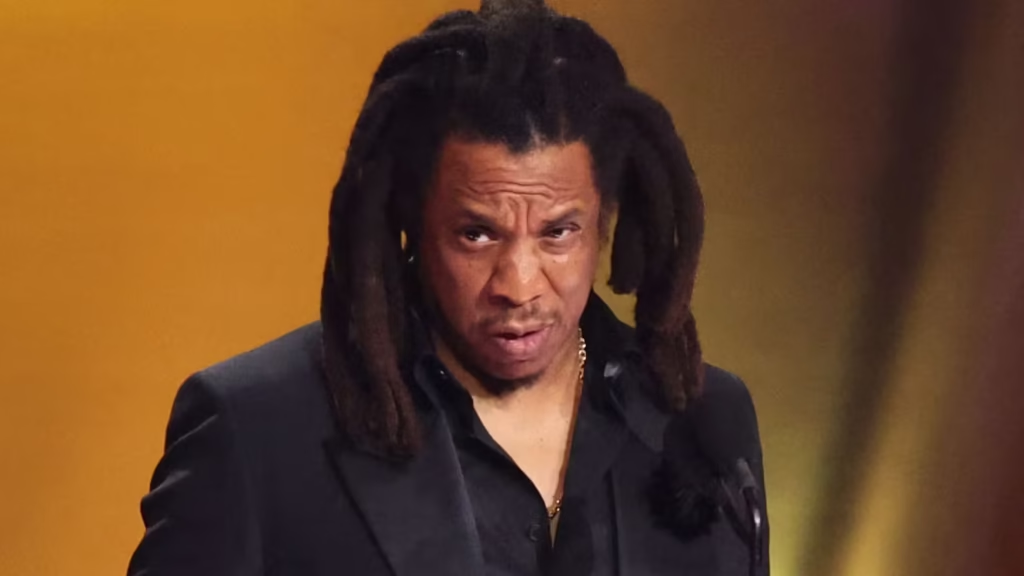
The $200 Million Claim
In a string of tweets, Minaj directly addressed Jay-Z, writing, “Jay-Z, call me to settle the karmic debt. It’s only collecting more interest. You still in my top five though. Let’s get it.” She went further, warning, “Anyone still calling him Hov will answer to God for the blasphemy.” According to Minaj, the alleged debt stems from Jay-Z’s sale of Tidal, the music streaming platform he launched in 2015 with a group of high-profile artists—including Minaj herself, J. Cole, and Rihanna.
When Jay-Z sold Tidal in 2021, Minaj claims she was only offered $1 million, a figure she says falls dramatically short of what she believes she is owed based on her ownership stake and contributions. She has long voiced dissatisfaction with the payout, but this is the most public—and dramatic—demand to date.
Beyond the Money: Broader Grievances
Minaj’s Twitter storm wasn’t limited to financial complaints. She also:
- Promised to start a college fund for her fans if she receives the money she claims is owed.
- Accused blogs and online creators of ignoring her side of the story, especially when it involves Jay-Z.
- Warned content creators about posting “hate or lies,” saying, “They won’t cover your legal fees… I hope it’s worth losing everything including your account.”
She expressed frustration that mainstream blogs and platforms don’t fully cover her statements, especially when they involve Jay-Z, and suggested that much of the coverage she receives is from less reputable sources.
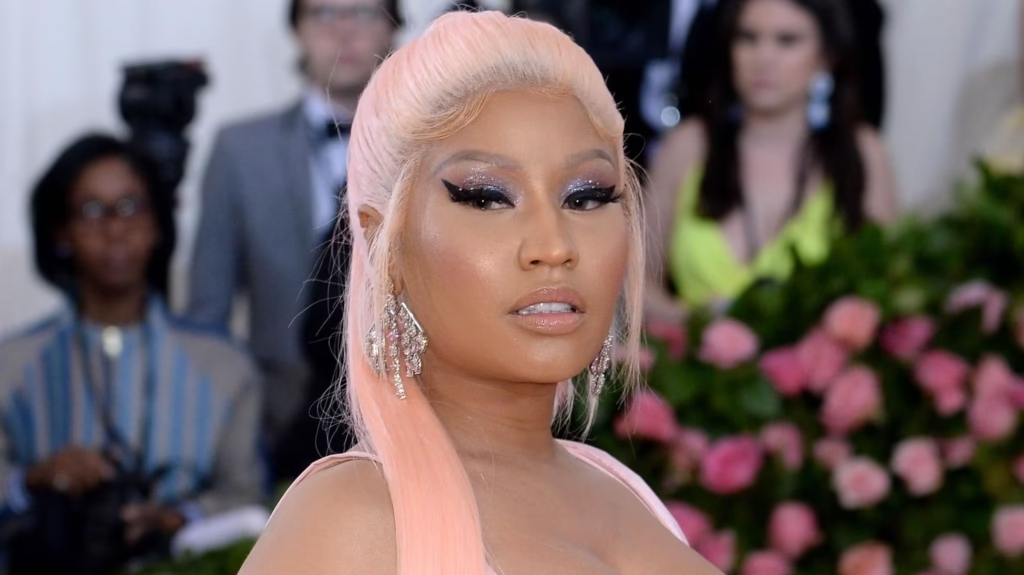
Satirical Accusations and Industry Critique
Minaj’s tweets took a satirical turn as she jokingly blamed Jay-Z for a laundry list of cultural grievances, including:
- The state of hip-hop, football, basketball, and touring
- The decline of Instagram and Twitter
- Even processed foods and artificial dyes in candy
She repeatedly declared, “The jig is up,” but clarified that her statements were “alleged and for entertainment purposes only.”
Political and Cultural Criticism
Minaj also criticized Jay-Z’s political involvement, questioning why he didn’t campaign more actively for Kamala Harris or respond to President Obama’s comments about Black men. While Jay-Z has a history of supporting Democratic campaigns, Minaj’s critique centered on more recent events and what she perceives as a lack of advocacy for the Black community.
The Super Bowl and Lil Wayne
Adding another layer to her grievances, Minaj voiced disappointment that Lil Wayne was not chosen to perform at the Super Bowl in New Orleans, a decision she attributes to Jay-Z’s influence in the entertainment industry.
Public and Industry Reaction
Despite the seriousness of her financial claim, many observers note that if Minaj truly believed Jay-Z owed her $200 million, legal action—not social media—would likely follow. As of now, there is no public record of a lawsuit or formal complaint.
Some fans and commentators see Minaj’s outburst as part of a larger pattern of airing industry grievances online, while others interpret it as a mix of personal frustration and performance art. Minaj herself emphasized that her tweets were “for entertainment purposes only.”
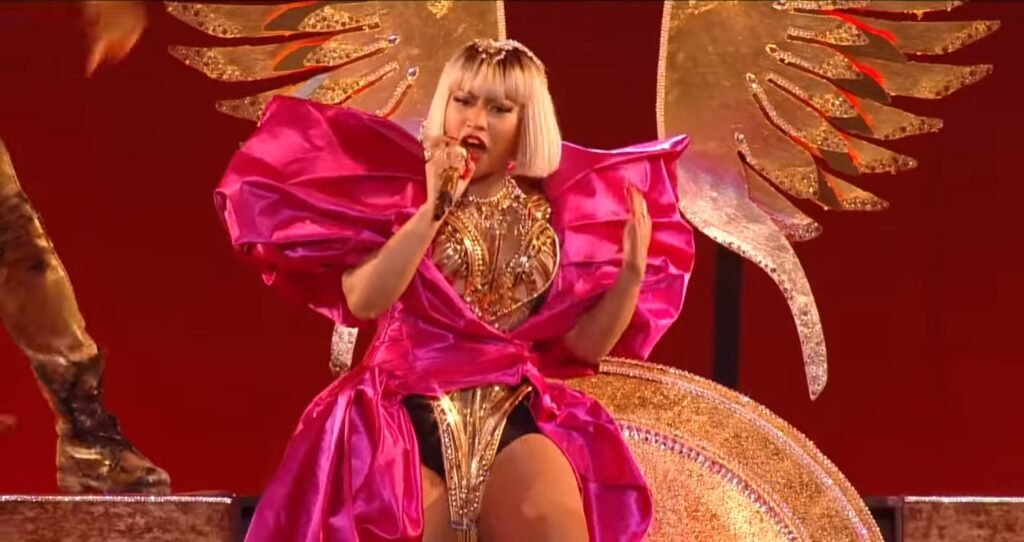
Conclusion
Nicki Minaj’s explosive Twitter rant against Jay-Z has once again placed the spotlight on issues of artist compensation and industry dynamics. Whether her claims will lead to further action or remain another dramatic chapter in hip-hop’s ongoing soap opera remains to be seen, but for now, the world is watching—and tweeting.

 Business2 weeks ago
Business2 weeks agoPros and Cons of the Big Beautiful Bill

 Advice3 weeks ago
Advice3 weeks agoWhat SXSW 2025 Filmmakers Want Every New Director to Know

 Film Industry4 weeks ago
Film Industry4 weeks agoFilming Yourself and Look Cinematic

 News2 weeks ago
News2 weeks agoFather Leaps Overboard to Save Daughter on Disney Dream Cruise

 Health2 weeks ago
Health2 weeks agoMcCullough Alleges Government Hid COVID Vaccine Side Effects

 Advice3 weeks ago
Advice3 weeks agoWhy 20% of Us Are Always Late

 Advice3 weeks ago
Advice3 weeks agoHow to Find Your Voice as a Filmmaker

 Entertainment2 weeks ago
Entertainment2 weeks agoJuror 25’s Behavior Sparks Debate Over Fairness in High-Profile Diddy Trial

















